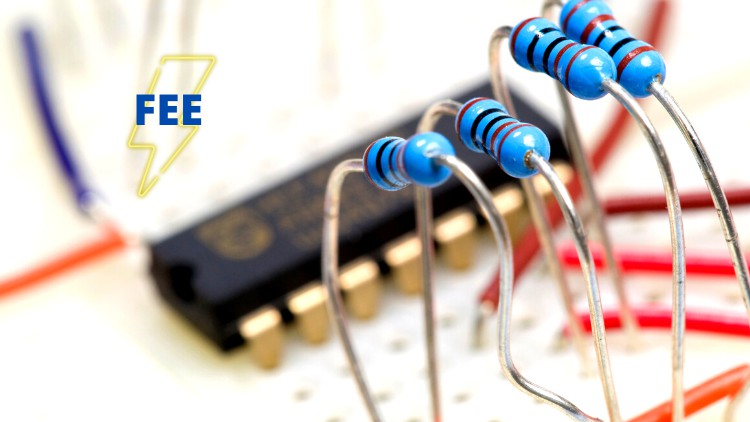Complete the Foundational Principles of Electrical Engineering Course
Analyze DC Electric Circuits
What you’ll learn
Complete the Foundational Principles of Electrical Engineering Course
- Electrical Engineering Foundations:
- The Function of Electricity
- Electrical Calculations
- Analyze a circuit theorem for an electric circuit.
Requirements
-
Math Basics
Description
Students in other fields as well as electrical engineering students may take this course on electrical circuit analysis.
In the first section of the course, basic definitions and an overview of how basic circuits and electrical devices work are given.
Throughout the course, there are many examples with answers, and the level of difficulty increases as the course goes on (each example is harder than the last) to help students understand the theory.
Electrical Fundamentals, Chapter 1
-
An Introduction to Electrical Engineering
-
Matter
-
Electron theory
-
Magnetism
-
electricity
-
Electromagnetism
-
Use of electromagnetism
Electrical Formulas (Chapter 2):
-
Ohm’s Law
-
Power Formula
-
Electrical Energy
-
electricity bill
Basic Electric Circuits (Chapter 3):
-
Electrical sources
-
The difference between a node, a loop, and a branch
-
series circuits
I.Current
Resistance II.
A Drop in Voltage
IV voltage divider.
Aiding and opposing sources
Kirchhoff’s voltage law
VII. Dissipation of power
VIII: Illumination of series bulbs
-
Parallel circuits
Current Division
I.existing division
II.The use of parallel circuits
III.light from parallel bulbs
Short circuits and open circuits
Series-Parallel Combination Circuits in Chapter 4
-
series-parallel circuit
-
sources that are circuit-dependent
-
Examples
Techniques for Nodal and Loop Analysis (Chapter 5):
-
Introduction
-
Nodal analysis
Multiple separate source circuits
figuring out equations with two unknowns.
figuring out how to solve problems involving three or more.
Source-dependent circuits
V.Supernode
-
Loop analysis
I. Multiple separate source circuits
II. Supermesh
III. Source-dependent circuits
- Star delta conversionthe progression of a delta into a star
Chapter 6 of Network Theorems for Circuit Analysis explains
- Source modification
- The Theory of Superposition
- The Thevenin Theorem is
- Norton’s Principle
- The Theorem of maximum power transfer
Who is this course for?
- Electrical engineering students and engineers, as well as communication engineering students and engineers
Who are interested in electric circuits in every field.






